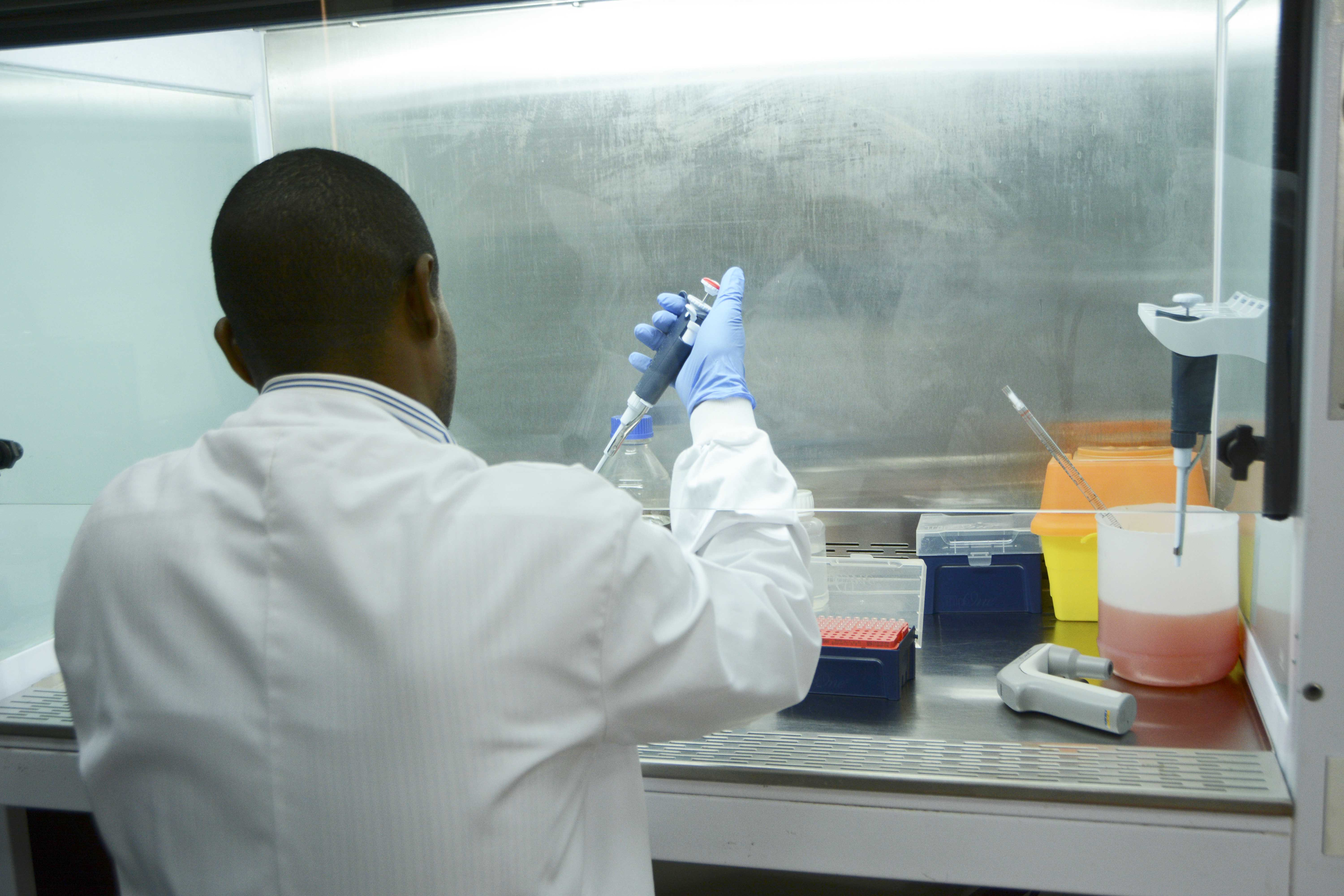Dramatic fall in infant deaths prompts calls for national immunisation programmes to incorporate treatment
A baby in Ghana receives the rotavirus vaccine. Photograph: Courtesy of Gavi
A rotavirus vaccine introduced in rural Malawi has reduced deaths from infant diarrhoea by more than a third, proving for the first time that a major intervention in a low-income country can be highly effective.
The findings, published in the Lancet Global Health, are likely to add further weight to calls by global health experts for rotavirus vaccine to be included in all national immunisation programmes.
“These findings are very, very encouraging indeed,” said Malawi’s chief of health services, Dr Charles Mwansambo.
“Rotavirus is a major problem in Malawi, but since the introduction of the vaccine we’ve seen remarkable drops in hospital admissions, proving that the vaccine is a worthwhile investment.”
Malawi introduced the monovalent rotavirus vaccine (RV1) in October 2012. For four years, scientists from the University of Liverpool, University College London, Johns Hopkins University and partners in Malawi tracked 48,672 infants born after the introduction of the vaccine. The monitoring, which covered more than 1,800 villages, involved documenting the childrens’ vaccination status and recording whether they survived beyond their first birthday.
Infants who received the vaccine had a 34% lower risk of dying from diarrhoea, researchers found – an impact similar to that seen in middle-income countries.
“Rotavirus remains a leading cause of severe diarrhoea and death among infants and young children in many countries in Africa and Asia,” said Professor Nigel Cunliffe from the University of Liverpool’s centre for global vaccine research, who led the study.
“Our findings strongly advocate the incorporation of rotavirus vaccine into the childhood immunisation programmes of countries with high rates of diarrhoea deaths, and support continued use in such countries where a vaccine has been introduced.”
Globally, rotavirus is the leading cause of severe diarrhoea, which claims the lives of an estimated 1,300 children daily, mainly in sub-Saharan Africa. Highly contagious, particularly among babies and young children, rotavirus can be spread by contaminated hands, objects such as toys and surfaces, and water and food. Diarrhoea is the second largest cause of death among infants and children worldwide, primarily in low-income countries, where access to clean water and sanitation is limited.
Although children in the world’s poorest countries account for 82% of rotavirus deaths, vaccines make a significant difference. In Mexico, diarrhoeal deaths among children under five declined by as much as 50%after rotavirus vaccines were introduced.
Yet, of the 10 countries with the greatest number of rotavirus-related deaths, only six – Afghanistan, Angola, Ethiopia, India, Kenya and Pakistan – have introduced national rotavirus vaccines or initiated phased introductions, according to the Rota Council.
Through Gavi, the global vaccine alliance, a number of lower-income countries have been able to implement the inoculation nationally. But vaccine support is withdrawn as GDP increases, which has left a number of high-burden countries to choose between continued administration of the vaccine or devoting funds to other key areas.
Researchers believe the data from Malawi is likely to create a positive tipping point, given the significant reduction both in deaths from rotavirus infection and overall deaths from diarrhoea.
“This trial provides potent evidence that, because of the many different effects of the vaccine, it is a worthy public health intervention,” said UCL’s Professor Robert Heyderman, who worked on the study.
“The key thing is that when a child gets diarrhoea, it leaves the child debilitated to other illnesses, such as malaria or pneumonia or something else, and that has a knock-on effect which can translate to poor performance in education or, ultimately, death. Although 34% doesn’t sound large, it’s a large impact on all infant diarrhoeal deaths. When we assessed the direct effect on rotavirus alone, the impact was very big – around 64%.”
A mother shows her baby’s vaccination certificate in Rumphi, northern Malawi. Photograph: Danita Delimont/Alamy
The vaccine can also help to improve nutrition, said Dr Carina King, one of the report’s lead authors and a senior research associate at UCL’s institute for global health.
“Repeated episodes of diarrhoea can contribute to a child becoming malnourished over time. Stopping that cycle allows the child to be better nourished and develop greater immunity, preventing the child from getting sick and dying from something else,” said King.
By the end of the study, researchers noted 92% coverage across Malawi for the rotavirus RV1 vaccine – a very high turnout for one of the poorest nations in the world, said Heyderman.
“We have three regions in Malawi, and 28 district hospitals, each of which acts as a centre for immunisations, so we try as much as we can to get into the remotest parts of the country and get the vaccine to as many people as possible,” said Mwansambo.
“For those countries that haven’t introduced the rotavirus vaccination, I don’t know what they’re waiting for. We know that it’s effective and that our children deserve better. They need it.”



